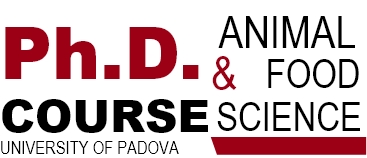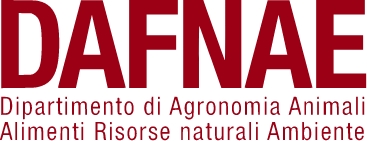Association between passive immunity and health status of dairy calves under 30 days of age
Lora, Isabella, Gottardo, Flaviana, Contiero, Barbara, Dall Ava, Brunella, Bonfanti, Lebana, Stefani, Annalisa, Barberio, Antonio (2018)
Calves are highly susceptible to disease and mortality occurrence within the first month of life. Even if failed transfer of passive immunity (FTPI) is commonly recognized as a main factor affecting calf health and survival, conflicting results are reported in literature about the association between passive immunity (PI) and calf health, especially regarding enteric diseases. Therefore, a prospective cohort study was conducted on 78 calves of three Italian dairy farms during winters of years 2014-2016, with the specific aim of evaluating the association between PI and health status of calves within 30 days of age under field conditions. Blood samples were collected between 1 and 5 days of age from each calf included in the study, and disease and mortality occurrence was monitored throughout the first month of life. Additionally, fecal samples were collected from calves with scours before treatment. Blood serum samples were tested by an electrophoretic method for the assessment of immunoglobulin (Ig) concentration, whereas fecal samples were submitted to ELISA test for positivity to Escherichia coli K99, rotavirus, coronavirus, and Cryptosporidium spp. Only enteric diseases occurred in calves of this study. Calves that suffered from diarrhea or died within the first month of life had lower serum Ig concentrations than those that remained healthy or survived (P < .05). Even if not significantly (P = .127), lower serum Ig concentrations were observed in sick calves that had been treated with antibiotics compared to those that had not been treated. The odds of disease and mortality occurrence were 24 (95% CI = 3-231) and 11 (95% CI = 1-111) times higher, respectively, for calves with FTPI (serum Ig concentration <10.0 g/L) than for those with an adequate PI transfer (P < .05). Calves with adequate PI transfer had also a 6-day delay in the age at first disease onset compared to those with FTPI (P < .01). Even if estimated on a small number of calves, those with FTPI had higher risks of enteric infections by rotavirus (odds ratio = 12; 95% CI = 1-137) and Cryptosporidium spp. (odds ratio = 9; 95% CI = 1-72) (P < .05). In this study, the PI level influenced the occurrence of enteric diseases and mortality in calves under one month of age, confirming the importance of a proper colostrum provision to calf health and, consequently, to the reduction of antimicrobial use in dairy farming. However, further investigations are needed, particularly focusing on the relationship between PI and specific enteropathogen infections in calves.



